
The American Peace Society is a pacifist group founded upon the initiative of William Ladd, in New York City, May 8, 1828. It was formed by the merging of many state and local societies, from New York, Maine, New Hampshire, and Massachusetts, of which the oldest, the New York Peace Society, dated from 1815. Ladd was an advocate of a "Congress and High Court of Nations." The society organized peace conferences and regularly published a periodical entitled Advocate of Peace. The Society was only opposed to wars between nation states; it did not oppose the American Civil War, regarding the Union's war as a "police action" against the "criminals" of the Confederacy. Its most famous leader was Benjamin Franklin Trueblood (1847–1916), a Quaker who in his book The Federation of the World (1899) called for the establishment of an international state to bring about lasting peace in the world. In 1834 the headquarters of the society were removed to Hartford, in 1834 to Boston, Massachusetts, in 1911 to Washington, D.C. The group is now based in Washington. Its official journal is World Affairs.
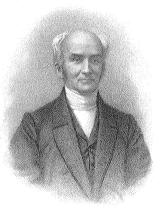
Timothy Gilbert was an American piano manufacturer, abolitionist and religious organizer in Boston, Massachusetts. His brother Lemuel Gilbert was also a piano manufacturer.

Joseph Milner Wightman was an American politician who, from 1861 to 1863, served as the seventeenth Mayor of Boston, Massachusetts.

The Boston Almanac was an almanac and business directory in 19th century Boston, Massachusetts published by Samuel N. Dickinson. Its offices were destroyed in the Great Boston Fire of 1872. The first almanac was published in 1836, and continued annually until at least 1894. Just about all editions contained a chronology of major events in Boston for the previous year or two years. Each almanac contained business listings, advertisements, and often city and/or state department information. Railroad, omnibus, and horse car companies were usually listed in a separate section. Some volumes highlighted famous buildings or places.

The Massachusetts Charitable Mechanic Association (est.1795) of Boston, Massachusetts, was "formed for the sole purposes of promoting the mechanic arts and extending the practice of benevolence." Founders included Paul Revere, Jonathan Hunnewell, and Benjamin Russell. Through much of the 19th century, the association organized conferences and exhibitions devoted to innovation in the mechanical arts.
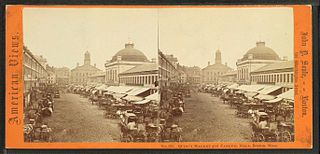
John Payson Soule (1828–1904) was a photographer and publisher in Boston, Massachusetts, and Seattle, Washington.
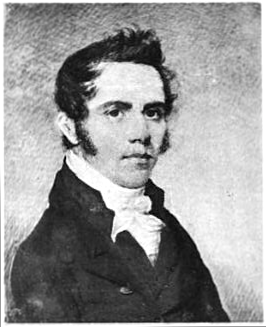
Abel Bowen (1790-1850) was an engraver, publisher, and author in early 19th-century Boston, Massachusetts.

Nathaniel Dearborn (1786–1852) was an engraver in 19th-century Boston, Massachusetts. He was born in New England in 1786 to inventor Benjamin Dearborn; siblings included John M. Dearborn and Fanny Dearborn Hanman. In Boston he learned engraving from Abel Bowen. By 1814 Dearborn worked from quarters on School Street; later moving to Market Street (ca.1823), State Street (ca.1826-1831) and Washington Street (ca.1832–1852). Around 1830, he also gave musical lessons on the flute.

Abram French (1815–1884) was a crockery, glassware, and china dealer in 19th-century Boston, Massachusetts.
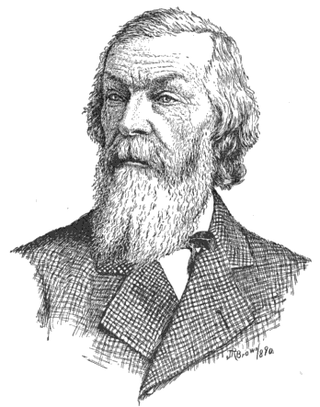
Benjamin Franklin Nutting was an artist in Boston, Massachusetts, in the 19th century. He taught drawing in local schools, published do-it-yourself drawing instruction materials, and showed his artwork in several exhibitions.
Deloss Barnum was a photographer in New York and Boston, Massachusetts, in the mid-19th century. Around 1857 he kept a daguerreotype studio on Winter Street in Boston; by 1858 he had moved to Commercial Street. In 1856-1860 he lived in Roxbury. He participated in the 1860 exhibition of the Massachusetts Charitable Mechanic Association. He died October 7, 1873, in Cortland, New York.
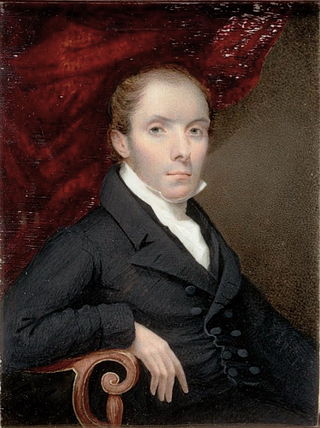
Thomas Edwards (1795–1869) was an artist in 19th-century Boston, Massachusetts, specializing in portraits. Born in London and trained at the Royal Academy, he worked in Boston in the 1820s-1850s, and in Worcester in the 1860s.
William Hilliard (1778–1836) was a publisher and bookseller in Boston and Cambridge, Massachusetts in the early 19th-century. He worked with several business partners through the years, including Jacob Abbot Cummings, James Brown, and Charles C. Little. President Thomas Jefferson selected his firm to supply approximately 7,000 volumes on numerous topics in 1825-1826, to create the University of Virginia Library.

Williams & Everett (est.1855) in Boston, Massachusetts, was an art dealership run by Henry Dudley Williams and William Everett. The firm sold original artworks by American and European artists, as well as "photographs and carbon-pictures of eminent persons, noted places, and famous paintings." It also continued the mirror and picture frame business that had been established earlier by the Doggett brothers.

Sampson R. Urbino (1818-1896), also known as S.R. Urbino, was a book dealer, publisher, and library owner in Boston, Massachusetts, in the 19th century. He focused on books in languages other than English.
The Mechanic Apprentices Library Association (1820-1892) of Boston, Massachusetts, functioned as "a club of young apprentices to mechanics and manufacturers ... whose object is moral, social, and literary improvement." Some historians describe it as "the first of the kind known to have been established in any country." Founded by William Wood in 1820, it also had an intermittent formal relationship with the larger, more established Massachusetts Charitable Mechanic Association. In its heyday, roughly 1820s-1850s, the Apprentices Library "[met] quarterly ; ... [had] nearly 200 members, and a library of about 2000 volumes; connected with which [was] a reading room, gratuitously supplied with the best newspapers and magazines of the city, and a cabinet of natural history. In addition to these advantages, the association [had] lectures and debates in the winter, and a social class for the study of elocution in the summer."

The Boston Atlas (1832–1857) newspaper of Boston, Massachusetts, was published in daily and semi-weekly editions in the mid-19th century. John H. Eastburn established the paper in 1832. Editors included Richard Hildreth, Richard Haughton, William Hayden, Thomas M. Brewer, William Schouler, R. Carter. Among the contributors: Joseph Carter Abbott, Benjamin Perley Poore, Samuel F. Tappan. Its office stood at no.18 State Street and later in the Old State House. The paper supported the Whig Party. Its Democratic rival, with which it sparred constantly, was The Boston Post. In 1857 the Boston Traveller absorbed The Atlas.
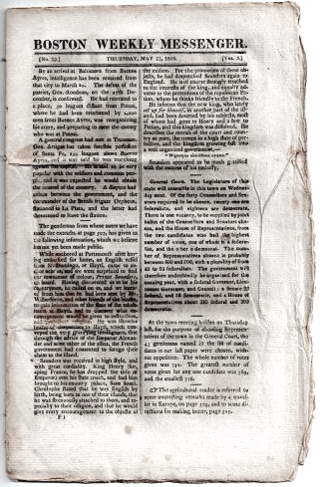
The Boston Weekly Messenger (1811–1861) was a newspaper in Boston, Massachusetts, in the 19th century. Publishers/editors included James Cutler and Nathan Hale. It began as "a political journal, established in 1811 by a company of young federalists, chief among whom was John Lowell." It consisted "largely of current news taken from the Boston Daily Advertiser;" the two papers shared an office at no.6 Congress Street.
The following is a timeline of the history of New Bedford, Massachusetts, United States.

Thomas Rice Burnham (1834-1893) or T.R. Burnham was an American photographer. In the 1860s he worked in Maine with Asa Marsh Burnham as "Burnham Bros." He later moved to Boston, Massachusetts and operated from a studio on Washington Street until at least 1885. He belonged to the Boston Photographic Society and/or Boston Association of Photographers; among his contemporaries were J.W. Black, E.J. Foss, and E.F. Smith. Portrait subjects included Edwin Booth, Alvan Clark & Sons, Edw M Endicott, Clement Granch, Ulysses S. Grant, William Stevens Perry, George Antony Smalley, and Nathan and Mary Barrett Warren. Burnham showed photos in the 1876 Philadelphia Centennial Exposition and the 1887 exhibition of the Massachusetts Charitable Mechanic Association.
















